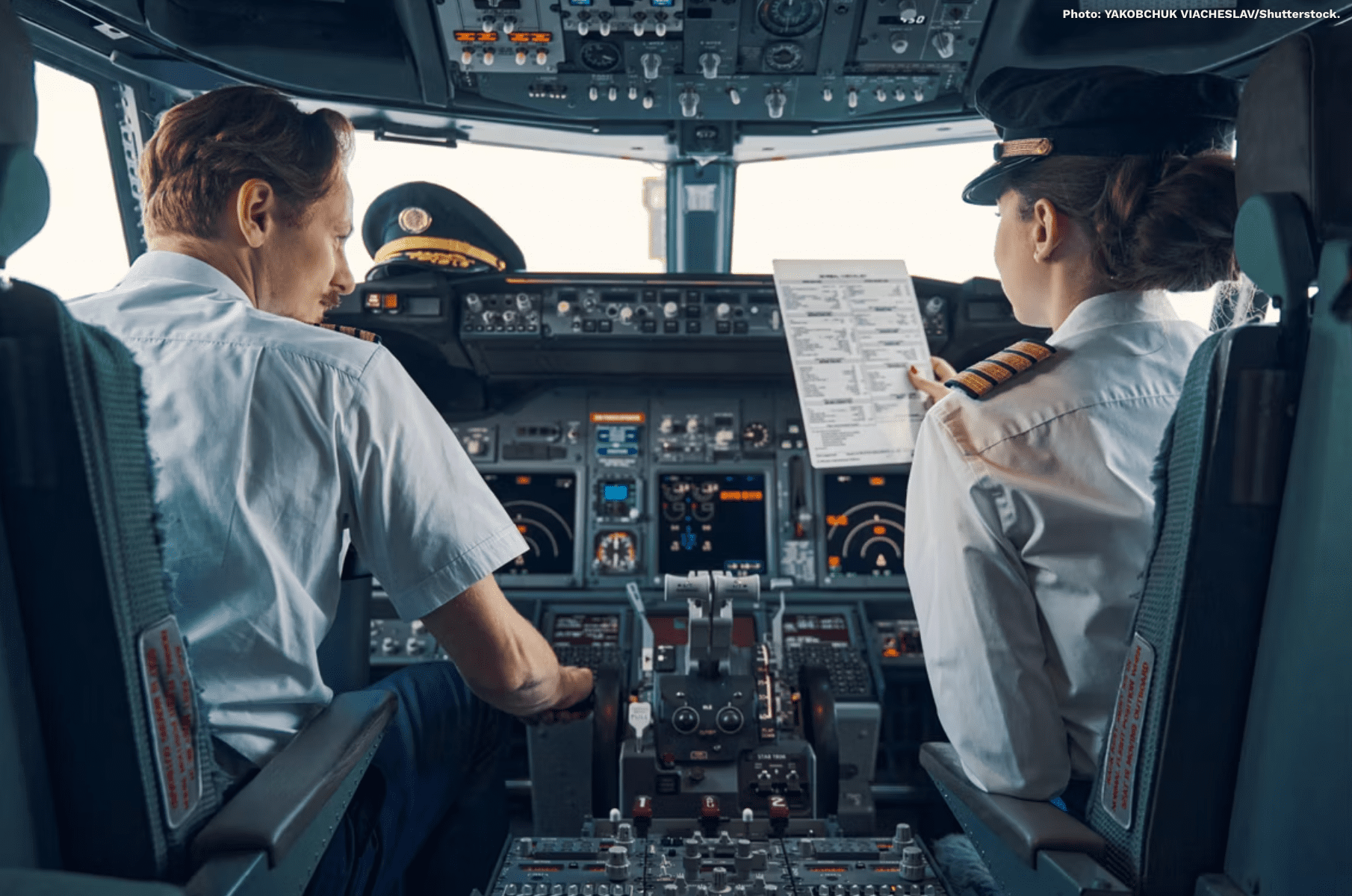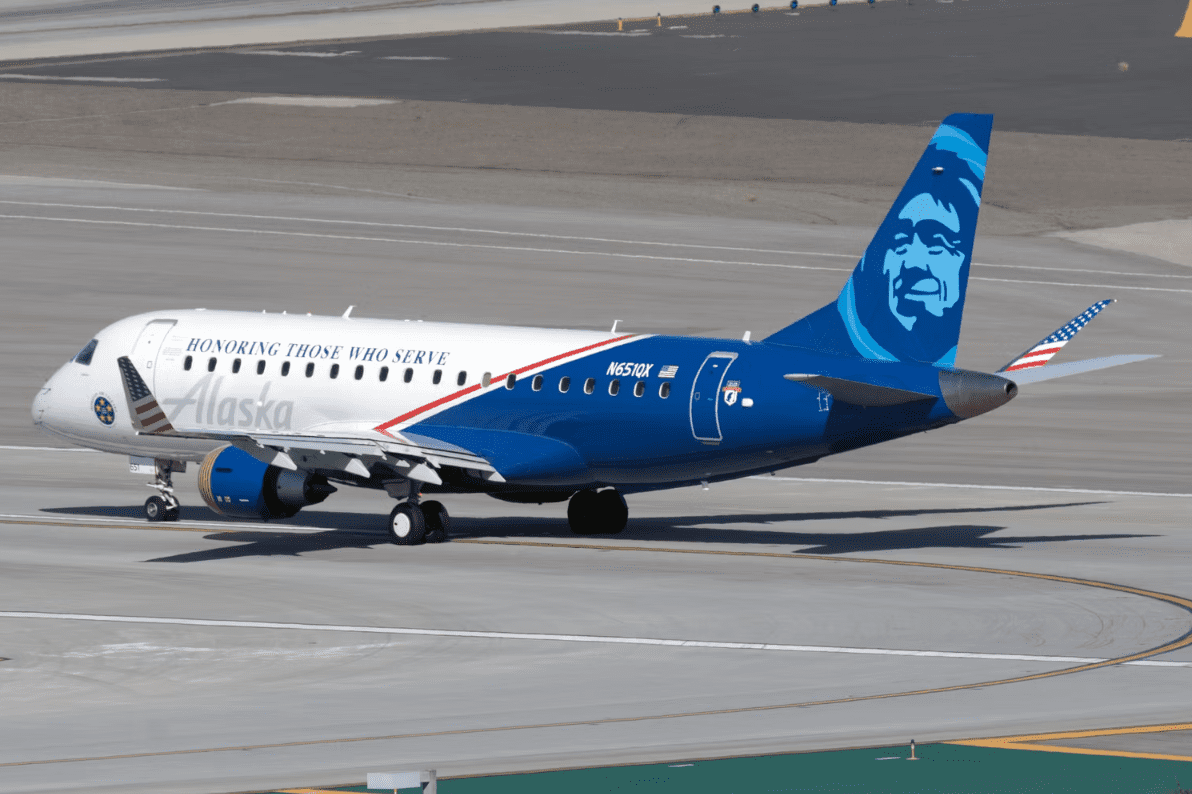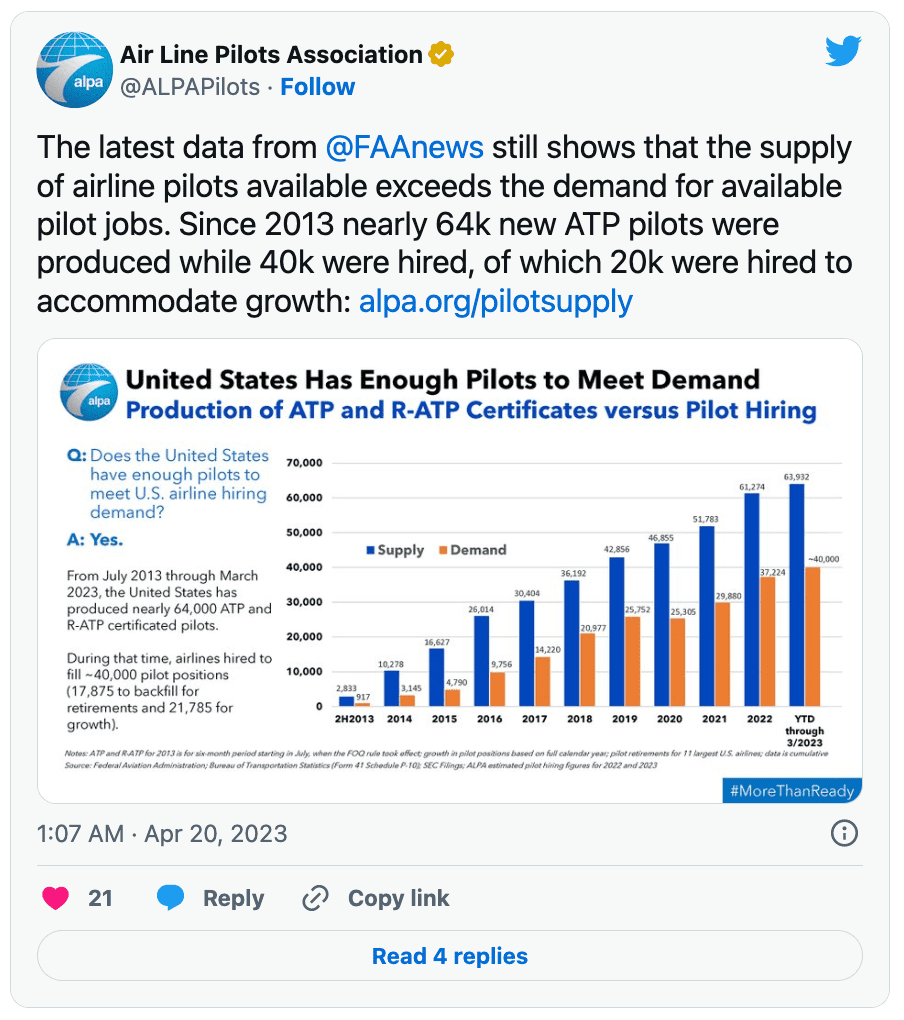Required retirements of pilots will peak in 2029, according to the Regional Airline Association.

The President and CEO of the Regional Airline Association, Faye Malarkey Black, testified today before the House Transportation and Infrastructure Committee addressing the ongoing pilot shortage and, what he said, a “coming tsunami of pilot retirements.” Shortly after, the Air Line Pilots Associations (ALPA) released a statement saying that the supply of airline pilots available exceeds the demand for available pilot jobs.
An incoming tsunami
Over the next 15 years, nearly 50% of the commercial airline workforce will be forced to retire because they will reach the age of 65, said Malarkey Black on Wednesday. According to the data presented by the CEO of RAA, there are 70% more pilots aged 43 to 64 than aged 21 to 42. This will create a perfect storm, or, as he said, the coming tsunami of pilot retirements.
Regional carriers are already facing a strong pilot shortage, as the twelve large carriers in the country hired 13,128 pilots in 2022, sourcing nearly all these pilots from regional carriers. Some regional carriers and RAA members include Air Wisconsin, CommuteAir, Endeavor Air, Envoy, Horizon Air, Mesa Airlines, and Ravn Alaska.

The impacts of this pilot shortage are real, he added. Currently, more than 500 regional aircraft are parked. Those jetliners remaining in service are underutilized. This has impacted 308 airports, or about 72% of all US airports, which have, on average, lost one-quarter of their flights.
This shortage is happening despite industry self-help measures such as compensation increases, new partnerships and pathways, and larger carriers. The RAA said that US carriers have not been successful in attracting new cadets outside the industry’s core demographic – white males. The main obstacle is related to access and wealth. “Bottom line, this is an expensive career path.”

In fact, there are currently about 1.5 certificated pilots relative to demand, according to Federal Aviation Administration and Bureau of Labor Statistics data, said ALPA. The union believes the industry has a shortage of executives “willing to stand by their business decisions to cut air service and be upfront about their intentions to skirt safety rules and hire inexperienced workers for less pay.”
Source: Simple Flying

Warning: Illegal string offset 'cookies' in /home/u623323914/domains/eng.bayviet.com.vn/public_html/wp-includes/comment-template.php on line 2564